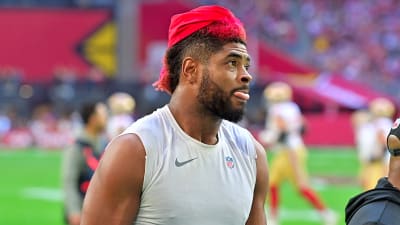Whether Candice Storey Lee was around Memorial Gymnasium as a women’s basketball player in the late 90s or in one of her various offices as an administrator over the years, she often heard a narrative about Vanderbilt’s lack of ability to effectively add through the transfer portal as a result of its academic standards.
The strict limits on how many hours a transfer has to take in order to earn a Vanderbilt degree have often dissuaded rising seniors from coming to West End. When they do, some of them are set back significantly academically like former Vanderbilt point guard Ezra Manjon was.
Storey Lee acknowledges that Vanderbilt is more stringent than other places, but believes that the narrative that her athletic department isn’t a real player in the portal is false.
“I think it’s clear that we’ve debunked that myth that you can’t use the portal well here or that there are too many roadblocks using the portal,” Storey Lee told Vandy on SI. “I think we’ve demonstrated that’s not true.”
In some ways, looking at the rosters of Vanderbilt’s major sports is looking at an example of how Vanderbilt’s production in the portal has evolved and how its admissions staff has become more flexible in terms of allowing players to get through. Vanderbilt’s football program was led by a group of New Mexico State transfers–including Diego Pavia, a former JUCO player–its men’s basketball program had eight first-year transfers in its rotation last season and its baseball program acquired its leader in batting average and two of the three members of its weekend rotation via the portal.
Vanderbilt’s coaches have used the portal more consistently since the emergence of the one-time transfer rule, but Storey Lee also remembers effective transfers in major sports that came via the portal in her playing days. As a result, she’s not buying that Vanderbilt makes it too difficult to build rosters that way.
“If anybody would know if we can’t use the portal, it’d be me,” Storey Lee–who played women’s basketball at Vanderbilt from 1996-2000–said. “I’ve been here for 30 years, I would know.”
Storey Lee isn’t naive to the idea that Vanderbilt has restrictions that other schools don’t in terms of how it operates in the transfer portal, but says her job is to “clear a path for our coaches to be able to meet our shared vision” surrounding their programs.
In a similar way to the narrative surrounding Vanderbilt’s transfer restrictions, there’s also been one formed around the athletic department that Storey Lee runs as a whole. That narrative consists of thoughts of “underperformance” relative to the rest of Vanderbilt’s conference peers and bothers Storey Lee deeply.
“What I’d say about this athletic department is that for the last five years we’ve been deeply committed to changing the narrative,” Storey Lee said. “I think the narrative is changing.”
Vanderbilt has a long way to go in order to change that narrative, but if it’s going to happen Storey Lee will largely have transfers like Pavia, Vanderbilt first baseman Riley Nelson–a transfer from Yavapai College–Tyler Nickel–a transfer from Virginia Tech–and their teammates to thank for it. Storey Lee knows that her athletic department can’t operate at a high level without players like that leading the way and finding a home within her facilities.
Even then, Storey Lee will still have to model her “evolution” when she hears claims of Vanderbilt’s portal negligence. She says one of her biggest areas of learning is knowing when to hold off on pushing back against a false narrative publicly and letting her department’s performance prove that narrative to be incorrect.
Storey Lee is less public facing in terms of defending her decision making and department than she was at the beginning of her tenure, but she doesn’t mind sharing what she believes to be the truth.
“We’ve used the portal effectively,” Storey Lee said. “I just don’t know that we can believe everything we hear.”
More must-reads:
- Texas HC Steve Sarkisian discusses Arch Manning's potential NFL Draft decision
- Johnny Manziel shares how NIL would have changed his career
- The 'No. 1 overall MLB Draft picks' quiz
Breaking News
Trending News
Customize Your Newsletter
 +
+
Get the latest news and rumors, customized to your favorite sports and teams. Emailed daily. Always free!








